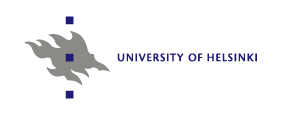Semantic Web: Intelligent Directories, 2002-2004
This page describes a research direction of the Semantic Computing Research Group (SeCo).
Goal
We investigated in 2002-2004
from the information storage and retrieval viewpoints,
how semantically rich data should be annotated with metadata
in order to facilitate content based-information retrieval.
Cultural artifact databases and photograph repositories are
used as case studies.
(Some of the) Top moments of the project
Results
 The Portal MuseumFinland
The Portal MuseumFinland
The main result of the project is the semantic portal "MuseumFinland -- Finnish Museums on the Semantic Web".
Its pilot version was opened on the public web at
http://www.museosuomi.fi
on March 8, 2004 (orignal url was http://museosuomi.cs.helsinki.fi). » Read more about MuseumFinland
Other software created by the project
During the project, also other software prototypes were created.
Publications
Eetu Mäkelä, Eero Hyvönen and Samppa Saarela:
Ontogator -- A Semantic View-based Search Engine Service for Web Applications.
Proceedings of the 5th International Semantic Web Conference (ISWC 2006), Nov, 2006.
bib pdf View-based search provides a promising paradigm for formulating complex semantic queries and representing results on the Semantic Web. A challenge for the application of the paradigm is the complexity of providing view-based search services through application programming interfaces (API) and web services. This paper presents a solution on how semantic view-based search can be provided efficiently through an API or as web service to external applications. The approach has been implemented as the open source tool Ontogator, that has been applied successfully in several practical semantic portals on the web.
Kim Viljanen, Teppo Känsälä, Eero Hyvönen and Eetu Mäkelä:
ONTODELLA - A Projection and Linking Service for Semantic Web Applications.
Proceedings of the 17th International Conference on Database and Expert Systems Applications (DEXA 2006), Krakow, Poland, pp. 370-376, IEEE, September 4-8, 2006.
bib pdf ps Content in semantic web portals is often projected along application specific navigational taxonomies and linked semantically. This paper presents a logic-based method and a server ONTODELLA for these tasks. We argue that logic rules between the content layer and the application layer add flexibility and better architectural separation of content and functionality. The system has been implemented and applied succesfully in several semantic portals.
Eero Hyvönen and Eetu Mäkelä:
Semantic Autocompletion.
Proceedings of the first Asia Semantic Web Conference (ASWC 2006), Beijing, Springer-Verlag, New York, August 4-9, 2006.
bib pdf This paper generalizes the idea of traditional syntactic text autocompletion onto the semantic level. The idea is to autocomplete typed text into ontological categories instead of words in a vocabulary. The idea has been implemented and its application for semantic indexing and content-based information retrieval in multi-facet search is proposed. Four operational semantic portals on the web using the implementation are presented as application cases.
Eetu Mäkelä:
View-Based Search Interfaces for the Semantic Web. MSc Thesis, University of Helsinki, June, 2006.
bib pdf This thesis explores the possibilities of using the view-based search paradigm to create intelligent search interfaces on the Semantic Web. After surveying several current semantic search techniques, the view-based search paradigm is explained, and argued to fit in a valuable niche in the field. To test the argument, OntoViews, a semantic view-based search portal creation tool was designed and implemented, and eight portals with five vastly different user interfaces were built using it. Based on the results of these experiments, this thesis argues that the paradigm, particularly as implemented in the OntoViews tool provides a strong, extensible and flexible base on which to built semantic search applications. The particular problems faced in applying view-based search for semantic interfaces are noted, along with explanations on how they were solved in the OntoViews architecture. Finally, directions and ideas for future research are presented for both the paradigm and the implementation architecture, respectively.
Eetu Mäkelä:
Survey of Semantic Search Research.
Proceedings of the Seminar on Knowledge Management on the Semantic Web, Department of Computer Science, University of Helsinki, 2005.
bib pdf This paper surveys the research field of semantic search, i.e. search utilizing semantic techniques or search of formally annotated semantic content. The survey identifies and discusses various prevalent research directions in se- mantic search, as well as extracts common methodology used in them.
Eero Hyvönen, Eetu Mäkelä, Mirva Salminen, Arttu Valo, Kim Viljanen, Samppa Saarela, Miikka Junnila and Suvi Kettula:
MuseumFinland - Finnish Museums on the Semantic Web. Journal of Web Semantics, vol. 3, no. 2, pp. 25, 2005.
bib pdf This article presents the semantic portal MUSEUMFINLAND for publishing heterogeneous museum collections on the Semantic Web. It is shown how museums with their semantically rich and interrelated collection content can create a large, consolidated semantic collection portal together on the web. By sharing a set of ontologies, it is possible to make collections semantically interoperable, and provide the museum visitors with intelligent content-based search and browsing services to the global collection base. The architecture underlying MUSEUMFINLAND separates generic search and browsing services from the underlying application dependent schemas and metadata by a layer of logical rules. As a result, the portal creation framework and software developed has been applied successfully to other domains as well. MUSEUMFINLAND got the Semantic Web Challence Award (second prize) in 2004.
Eero Hyvönen, Miikka Junnila, Suvi Kettula, Eetu Mäkelä, Samppa Saarela, Mirva Salminen, Ahti Syreeni, Arttu Valo and Kim Viljanen:
Publishing Museum Collections on the Semantic Web - the MuseumFinland Portal.
Proceedings of WWW2004, New York, Alternate Track Papers and Posters, May, 2004.
bib pdf Museum collections contain large amounts of data and semantically rich, mutually interrelated metadata in heterogeneous databases. The publication of museum collections on the web is therefore a very promising application domain for semantic web techniques. We present a semantic web portal called MUSEUMFINLAND - Finnish Museums on the Semantic Web , that contains some 4,000 cultural artifacts from the collections of three museums using three different database schemas and database systems. The system is based on seven RDF(S) ontologies consisting of some 10,000 classes and individuals.
Eero Hyvönen, Samppa Saarela, Kim Viljanen, Eetu Mäkelä, Arttu Valo, Mirva Salminen, Suvi Kettula and Miikka Junnila:
A Cultural Community Portal for Publishing Museum Collections on the Semantic Web.
Proceedings of 16th European Conference on Artificial Intelligence (ECAI2004), Workshop on Application of Semantic Web Technologies to Web Communities, 2004.
bib pdf This paper presents a deployed semantic web application in the cultural domain: the semantic portal MUSEUMFINLAND. It is a demonstration of a community portal and a publication channel by which heterogeneous collection database contents of different museums can be published on the Semantic Web. By semantic web techniques, it is possible to make collections semantically interoperable and provide the museum visitors with intelligent content-based search and browsing services to the global collection base.
Eero Hyvönen, Miikka Junnila, Suvi Kettula, Eetu Mäkelä, Samppa Saarela, Mirva Salminen, Ahti Syreeni, Arttu Valo and Kim Viljanen:
Finnish Museums on the Semantic Web. User s Perspective on MuseumFinland.
Proceedings of Museums and the Web 2004 (MW2004), 2004.
bib This paper presents a semantic portal, MuseumFinland, for publishing heterogeneous museum collections on the Semantic Web. The application is presented from the viewpoints of the end-user and the museums providing the contents. By semantic Web techniques, it is possible to make collections semantically interoperable and provide museum visitors with intelligent content-based search and browsing services to the global collection base. By using the MuseumFinland approach, the museums with their semantically rich and interrelated collection content can create consolidated semantic collection portals together on the Web.
Eero Hyvönen, Samppa Saarela, Kim Viljanen, Eetu Mäkelä, Arttu Valo, Mirva Salminen, Suvi Kettula and Miikka Junnila:
A Semantic Portal for Publishing Museum Collections on the Web.
Proceedings of ECAI/PAIS 2004, 2004.
bib pdf This paper presents the semantic portal MUSEUMFINLAND for publishing museum collections on the Semantic Web. It is shown how museums with their semantically rich and interrelated collection content can create a large, consolidated semantic collection portal together on the web. By semantic web techniques, it is possible to make collections semantically interoparable and provide the museum visitors with inntelligent content-based search and browsing services to the global collection base.
Eero Hyvönen, Miikka Junnila, Suvi Kettula, Samppa Saarela, Mirva Salminen, Ahti Syreeni, Arttu Valo and Kim Viljanen:
Publishing Collections in the Finnish Museums on the Semantic Web Portal - First Results.
Proceedings of XML Finland 2003, Kuopio, Finland, October 30-31, 2003. Paper presented at the symposium Arts and Humanities in the Digital Domain: Towards Web based Culture and Science, Salzburg, Austria, Oct. 6-7, 2003.
bib pdf Partnering organizations
Contact Person
Prof. Eero Hyvönen
 The Portal MuseumFinland
The Portal MuseumFinland


